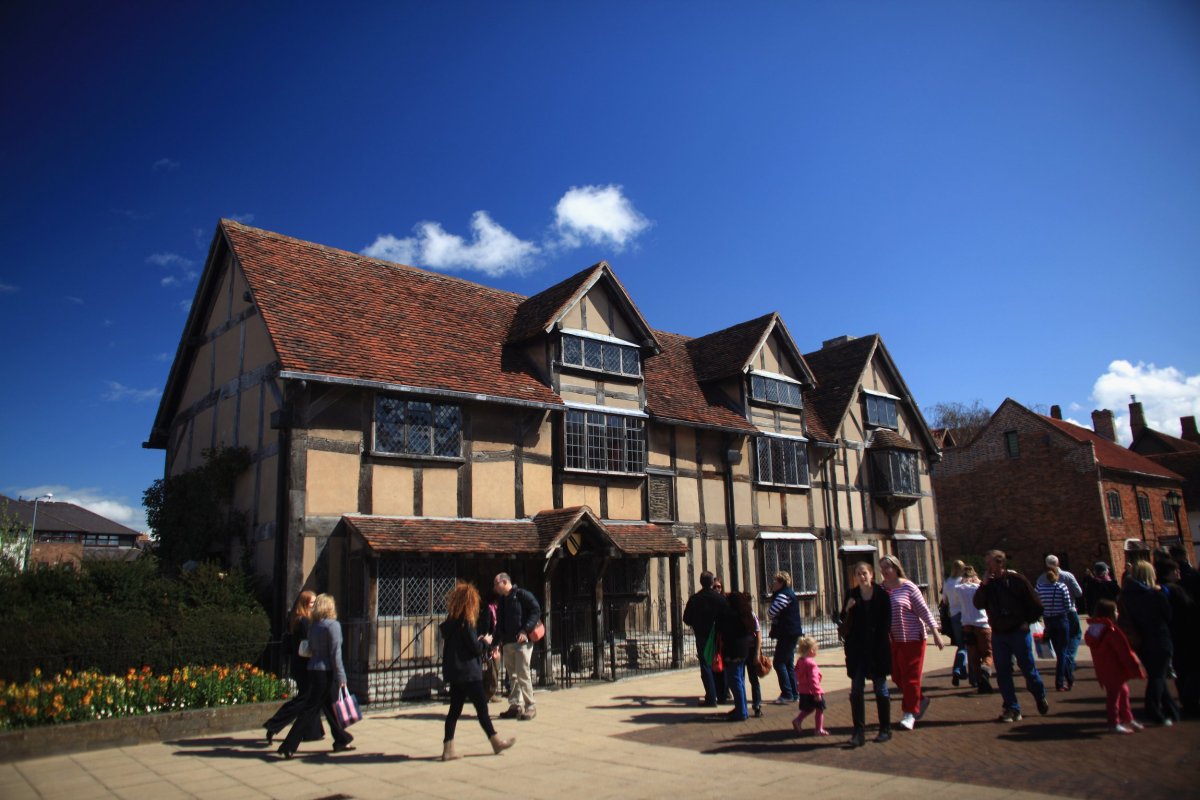
"The evil that men do lives after them; the good is oft interred with their bones," said Mark Antony in William Shakespeare's Julius Caesar following the murder of the protagonist.
The first part of that statement certainly applies to Osama bin Laden. The name of the Al-Qaeda founder—killed in a U.S. raid in Pakistan in 2011—remains instantly recognizable, largely for his role in overseeing the 9/11 attacks that took the lives of almost 3,000 people.
And now, following the CIA release of almost 470,000 files seized from bin Laden's Abbottabad compound in the 2011 raid, it seems that some of bin Laden's earliest hatred toward the West built up during childhood visits to the home of playwright Shakespeare in England.

The CIA release included Bin Laden's personal journal, written in Arabic and more than 220 pages long. Writing shortly before his death, bin Laden recalled visits to the U.K. when he was a teenager, according to a translation of parts of the journal by The Guardian.
The militant leader recounted one visit to "the West" when he was in "sixth grade," meaning he would have been 13 years old. He was there for a "treatment," though he doesn't provide details of what. The following year, he spent 10 weeks in the U.K. "studying." Previous reports suggest that bin Laden visited Oxford in 1971, aged 14, and a photo appears to show the Saudi-born cleric posing with two of his brothers and two Spanish students while on a language course.
Read more: CIA releases new Osama bin Laden documents, including the terror mastermind's journal
Bin Laden writes in the journal how he was "not impressed" when he visited the house where Shakespeare was born in Stratford-upon-Avon, in central England.
"I got the impression that they were a loose people, and my age didn't allow me to form a complete picture of life there," wrote bin Laden. "We went every Sunday to visit Shakespeare's house. I was not impressed and I saw that they were a society different from ours and that they were a morally loose society."
It is not clear what particularly disgusted bin Laden about British society and culture, but the future militant came away with an impression that the West was "decadent" and substantially different to the Islamic society he envisioned.
Shakespeare's birthplace is a restored 16th-century house, where the playwright was born in 1564 and spent his childhood years. After the death of his father, Shakespeare inherited the house and leased part of the property, which became an inn called the Maidenhead. Shakespeare left the house to his eldest daughter Susanna when he died in 1616.
Born to billionaire Mohammed bin Awad bin Laden, the younger bin Laden studied in Saudi Arabia as a young man. He joined the mujahideen in Afghanistan fighting against the Soviet invasion in the late 1970s and 1980s. Most accounts of his life suggest that he was radicalized in the 1990s, after being expelled from Saudi Arabia for anti-government activities and later forced out of his haven in Sudan at the request of the United States.
Some of the CIA files were released early to the Long War Journal, a U.S. publication that has long called for greater transparency on what the U.S. government knows about Al-Qaeda and bin Laden. The files released by the CIA paint a complex picture of the Al-Qaeda leader, who went into hiding shortly after the 9/11 attacks. As well as large amounts of Al-Qaeda propaganda and the first video of bin Laden's son and potential successor, Hamza, as an adult, the trove of released files also included a viral YouTube video of a child biting his brother's finger and dozens of videos on crocheting.
Uncommon Knowledge
Newsweek is committed to challenging conventional wisdom and finding connections in the search for common ground.
Newsweek is committed to challenging conventional wisdom and finding connections in the search for common ground.
About the writer
Conor is a staff writer for Newsweek covering Africa, with a focus on Nigeria, security and conflict.
To read how Newsweek uses AI as a newsroom tool, Click here.








